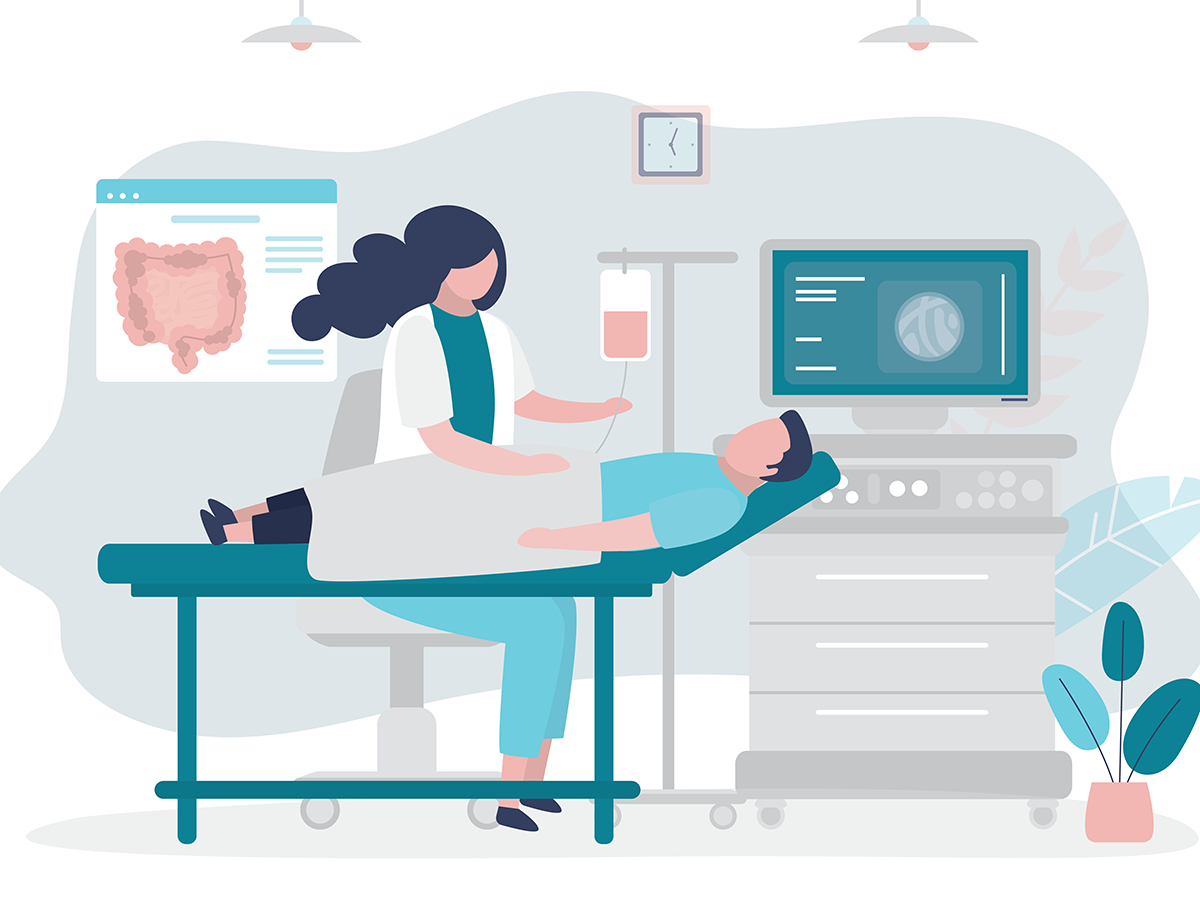Learn about the less-intrusive screening options now available
 According to the National Cancer Institute, colorectal cancer is the fourth-most-common cancer diagnosed in the United States. More than 50,000 Americans die each year from it. About 1 in 23 men and 1 in 26 women are at risk of developing colorectal cancer in their lifetimes. The Centers for Disease Control and Prevention (CDC) recommends adults between the ages of 45 and 75 should be regularly screening for colorectal cancer, younger if you have a family history.
According to the National Cancer Institute, colorectal cancer is the fourth-most-common cancer diagnosed in the United States. More than 50,000 Americans die each year from it. About 1 in 23 men and 1 in 26 women are at risk of developing colorectal cancer in their lifetimes. The Centers for Disease Control and Prevention (CDC) recommends adults between the ages of 45 and 75 should be regularly screening for colorectal cancer, younger if you have a family history.
Signs that you might possibly have colon cancer include:
- Blood in stool
- A change in bowel movements
- Abdominal pain
Many Avoid Screening
Even with the risks of colorectal cancer, getting tested may still be intimidating. Many people avoid getting tested because they’ve heard about the uncomfortable process.
However, the traditional prep for a colonoscopy has become less intense recently, and there are new, less-invasive options to screen for colorectal cancer.
Colorectal cancer screening should not be delayed, and these new options make it easier for you to stay informed about your health.
Colonoscopy
A colonoscopy remains the gold standard of inspecting the colon. In the procedure, a doctor uses a flexible, lighted tube to view the inside of the rectum and the entirety of the colon. The doctor can also remove colon polyps during the procedure. This procedure is usually repeated every 10 years.
Once the subject of concern and comedian’s punchlines, the preparation for a colonoscopy is less disruptive than it used to be. The prescription laxative drink tastes better and is consumed over fewer hours before the procedure than was previously true.
On the good side, all that prep has had real benefits: the death rate from colorectal cancer continues to drop.
Virtual colonoscopy
A virtual colonoscopy, also called computed tomography colonography, use X-rays and CT scans to create clear images during the scans. The computer-generated, cross-sectional images of the abdominal organs and colon are analyzed by the doctor who look for abnormalities. It does not require sedation.
It is less invasive, but also less accurate than the physical version.
This procedure should be repeated every five years.
Fecal tests
There are two tests that can be administered at home, stool DNA test and fecal occult blood test.
A stool DNA tests a sample of stool, looking for altered DNA in the sample. Mutations can indicate the presence of cancer. It should be repeated every three years.
A fecal occult blood test involves taking a stool sample and looking for traces of blood. Rectal bleeding is a symptom of colorectal cancer. A fecal occult blood test can be repeated every year.
Sigmoidoscopy
Like a colonoscopy, a sigmoidoscopy uses a short, thin, flexible tube with a light at the end to view inside the rectum. The difference is a sigmoidoscopy inspects just the lower third of the colon. The procedure looks for colon polyps that could become colon cancer. This procedure should be repeated every five years.
Be proactive about colorectal cancer and ask your doctor about screening options right for you.
